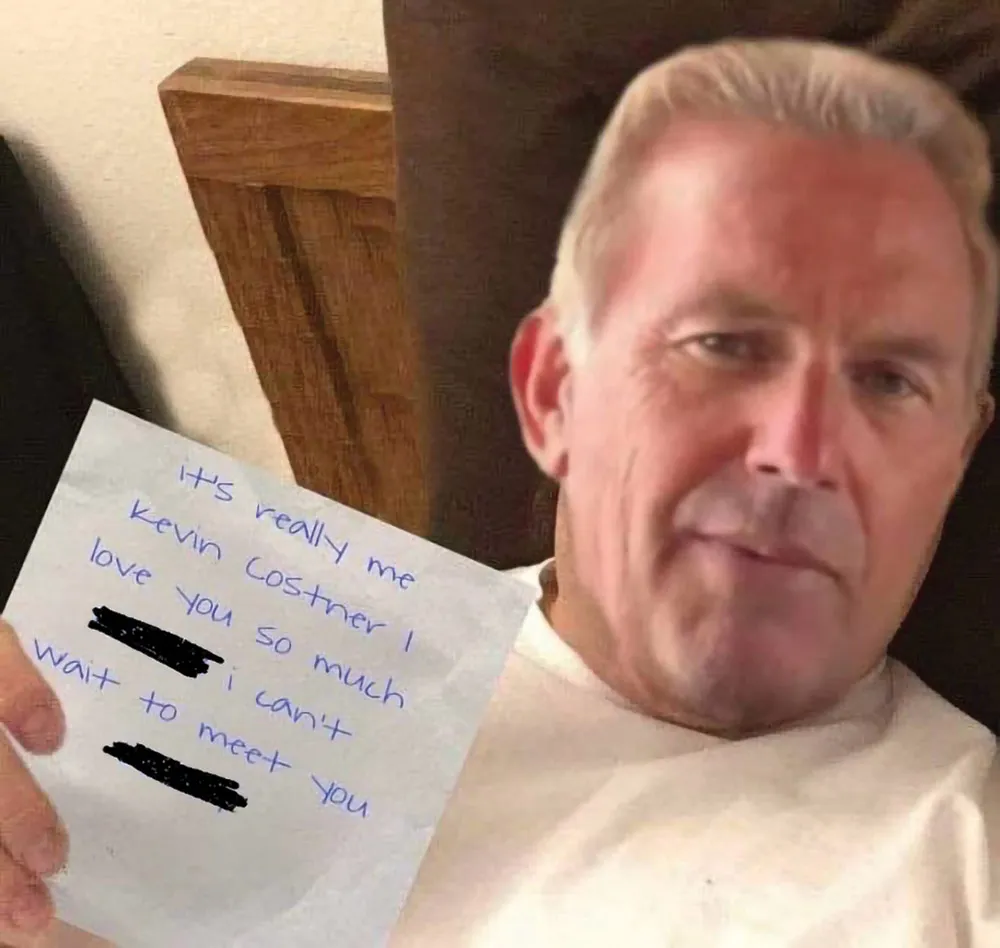A 73-year-old woman named Margaret packed her suitcases and drove an hour from her rural Southern home to a hotel. She was convinced that she was finally going to meet Kevin Costner.
After months of exchanging messages with someone she believed was the Oscar-winning actor, she had transferred approximately $100,000 in bitcoin to fund what she thought was his new production company.
The elaborate deception began on Facebook, where Margaret connected with an account claiming to be the “Yellowstone” star. Despite the obvious red flags that would make most people skeptical about a Hollywood celebrity seeking financial help from a retired office manager, Margaret felt special. More importantly, she was vulnerable – her marriage was crumbling, her career had ended, and her family was occupied with their own lives.

The scammer had initially discussed flying Margaret to Los Angeles before settling on the hotel meeting in her home state. Margaret had kept her bags packed for weeks, eagerly awaiting their rendezvous. But as she waited anxiously in the hotel room, she received a devastating message: a photo of a mangled car with claims that Costner had been in an accident and couldn’t make it.
That moment marked the beginning of Margaret’s painful realization. A reverse Google image search revealed the crash photo was circulating widely across the internet. The man she had fallen for and financially supported didn’t exist.
Margaret’s experience represents a growing epidemic of celebrity-impersonation scams that have caught the attention of Hollywood and law enforcement. These sophisticated operations exploit fans’ emotional connections to their favorite stars, using increasingly advanced technology to create convincing false personas.
According to FBI supervisory special agent Nick Berta, celebrities face unique challenges in protecting themselves from impersonators. The psychological manipulation employed by these scammers is particularly devastating. Erin West, a former prosecutor from Santa Clara, California, who specializes in high-tech crimes, describes the impact: “The psychological hold they have over people is like nothing I’ve ever seen. It is cult-like. It absolutely overwhelms any type of reasonable thought. They’re able to overcome what humans would normally discern to be a ridiculous situation.”
Americans reported $672 million in losses to confidence and romance scams in 2024, with people over 60 filing the most complaints and losing the most money – averaging $83,000 per victim. These figures likely underrepresent the true scope of the problem, as many victims like Margaret never report their losses due to shame or lingering hope that their relationship might have been real.
Recently, A 54-year-old Vancouver man, Roger Winsel, fell victim to a celebrity impersonation scam after believing he was in an online relationship with WWE star Liv Morgan for over six months. Despite being married for 31 years, Roger proposed to the fake account with a $1,200 ring. He even expressed in a disturbing message that his terminally ill wife would soon be “out of the picture.”
Investigators were alerted by his wife, Lori, who is battling late-stage cancer, after she discovered alarming texts on his phone.
The speed at which these scams operate is alarming. Social media platforms typically take about 48 hours to process takedown requests, creating a window where scammers can establish contact with victims and move them to private messaging apps like Telegram, where they’re harder to track.
Hollywood has taken notice of this growing threat. Some 400 performers, including Scarlett Johansson, Common, and SAG-AFTRA president Fran Drescher, have endorsed the No Fakes Act, proposed legislation that would create protections for artists’ voices, likenesses, and images from unauthorized AI-generated deep fakes.


